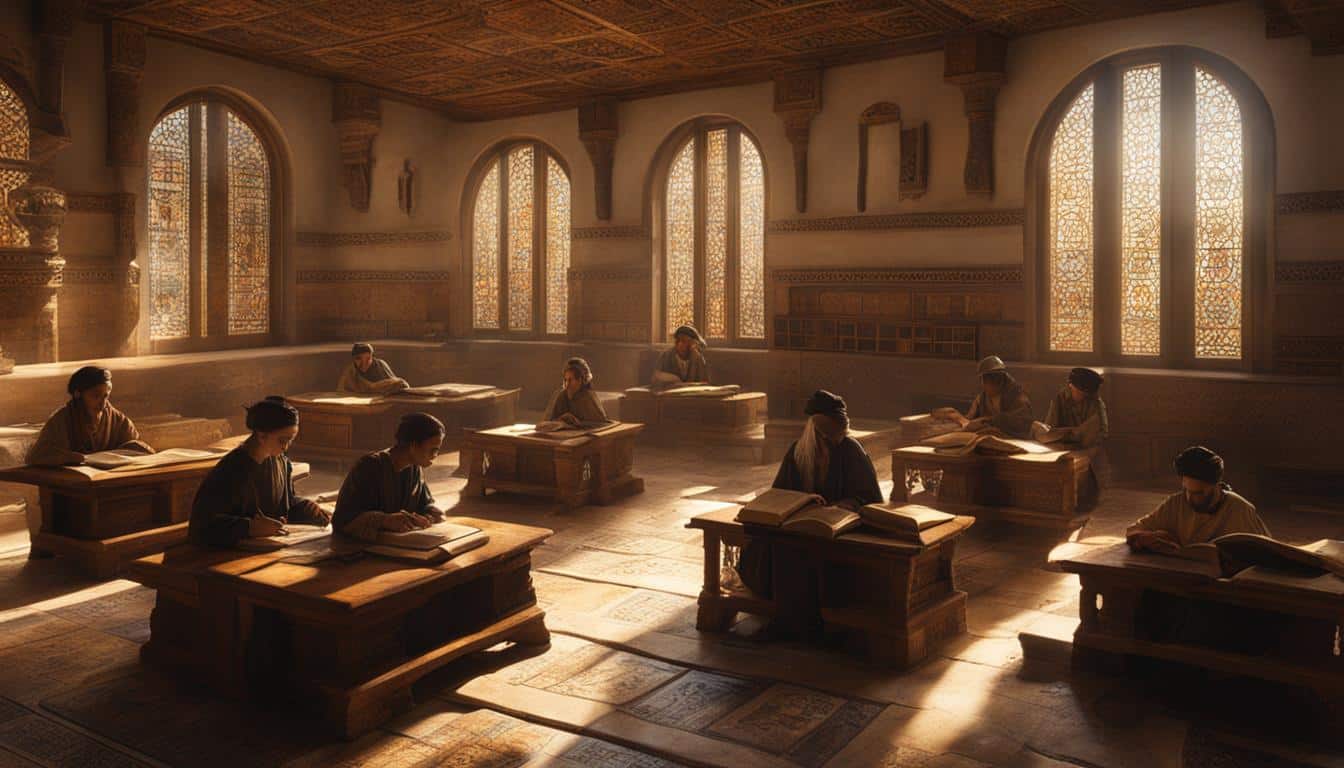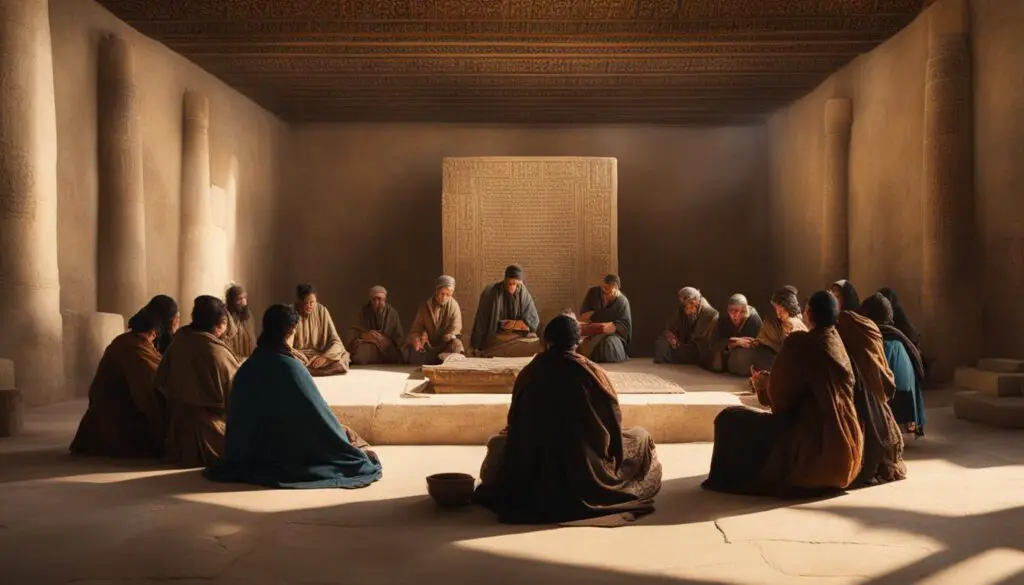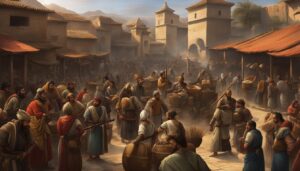
Education and literacy played a significant role in ancient Israelite society. The education system focused on imparting knowledge and skills to the younger generation, ensuring the continuity of cultural and religious traditions. Ancient Israelite schools provided formal education, mainly in the form of scribal training, which was highly valued and sought after. This emphasis on literacy reflected the importance of written communication in religious and administrative contexts.
Key Takeaways
- The education system in ancient Israel placed a strong emphasis on literacy and imparting knowledge.
- Ancient Israelite schools offered formal education, with a focus on scribal training.
- Literacy played a crucial role in religious and administrative practices, serving as a marker of social status.
- Scribes were responsible for transcribing and preserving important religious and legal documents.
- Education in ancient Israel enabled individuals to engage in religious and cultural life, enhancing their understanding of heritage.
Importance of Literacy in Ancient Israel
In ancient Israel, literacy held immense importance and served multiple purposes beyond basic communication. It was a symbol of social status, granting individuals a higher standing in society. Additionally, literacy played a critical role in religious and administrative practices, making it a fundamental aspect of education in ancient Israel.
The ancient Israelite education system emphasized the teaching of reading, writing, and interpreting texts. However, the most sought-after form of education was scribal training. Scribes were responsible for transcribing and preserving important religious and legal documents, making them indispensable members of society. The ability to read and write allowed individuals to actively participate in religious ceremonies, understand religious texts, and assume administrative roles in the government.
In the words of an ancient Israelite scholar, “Literacy opens doors to divine knowledge and worldly affairs alike, empowering individuals to connect with the divine and contribute to the effective governance of our nation.”
Educational practices in ancient Israel employed various learning methods, including memorization, recitation, and oral instruction. The ancient Hebrew education system focused not only on religious texts but also on imparting moral values and practical skills necessary for daily life. Literacy played a significant role in recording and preserving important religious and historical events, ensuring the continuity of Israelite traditions and knowledge for future generations.

Ancient Israelite Education: A Table
| Educational Practices | Details |
|---|---|
| Teaching Focus | Religious texts, moral values, practical skills |
| Learning Methods | Memorization, recitation, oral instruction |
| Scribal Training | Emphasized in ancient Israelite education system |
| Role of Literacy | Marker of social status, participation in religious ceremonies, understanding religious texts, administrative roles |
| Historical Significance | Recording and preservation of important events, continuity of traditions and knowledge |
Educational Practices in Ancient Israel
Education in ancient Israel held numerous benefits and played a vital role in society. The ability to read and write, stemming from the Ancient Hebrew education system, ensured not only the stability but also the effective administration of the nation. A literate populace could actively engage in the religious and cultural life of the community, enhancing their understanding of their heritage and preserving their customs.
A variety of learning methods were employed in ancient Israelite education. Memorization, recitation, and oral instruction were key components of the teaching process. By emphasizing the teaching of religious texts, moral values, and practical skills necessary for daily life, the ancient Israelites cultivated well-rounded individuals who could contribute meaningfully to their community.
The historical significance of literacy in ancient Israel cannot be overstated. The ability to read and write allowed for the recording and preservation of important religious and historical events. This ensured the continuity of Israelite traditions and knowledge for future generations. By transmitting vital information through the generations, the ancient Israelites safeguarded the foundation of their society and its values.
FAQ
What was the role of education in ancient Israelite society?
Education played a significant role in ancient Israelite society, ensuring the continuity of cultural and religious traditions and imparting knowledge and skills to the younger generation.
What type of education did ancient Israelite schools provide?
Ancient Israelite schools mainly provided formal education in the form of scribal training, which was highly valued and sought after.
Why was literacy important in ancient Israel?
Literacy in ancient Israel was not only a means of communication but also a marker of social status and played a crucial role in religious and administrative practices.
What were the benefits of education in ancient Israel?
Education in ancient Israel allowed individuals to engage in religious and cultural life, enhanced their understanding of their heritage, and contributed to the stability and effective administration of the nation.
How did the education system in ancient Israel function?
The education system in ancient Israel employed various learning methods, including memorization, recitation, and oral instruction. It emphasized the teaching of religious texts, moral values, and practical skills necessary for daily life.
What was the historical significance of literacy in ancient Israel?
Literacy allowed for the recording and preservation of important religious and historical events, ensuring the continuity of Israelite traditions and knowledge for future generations.








